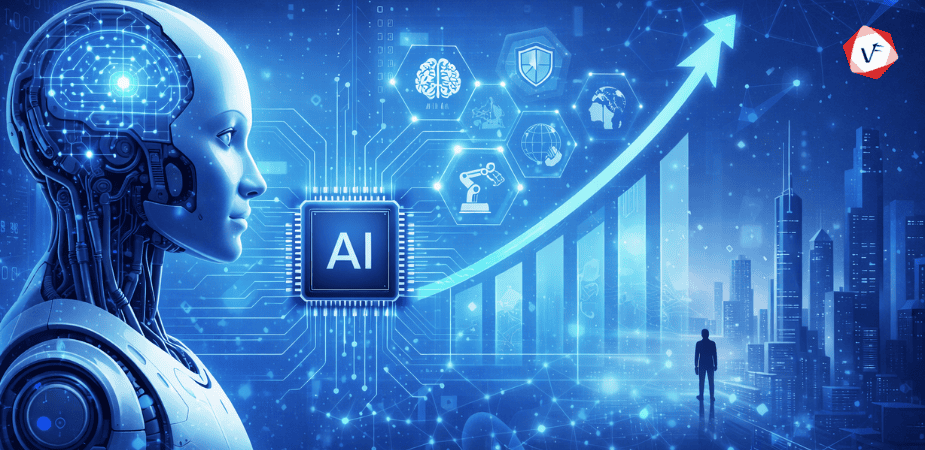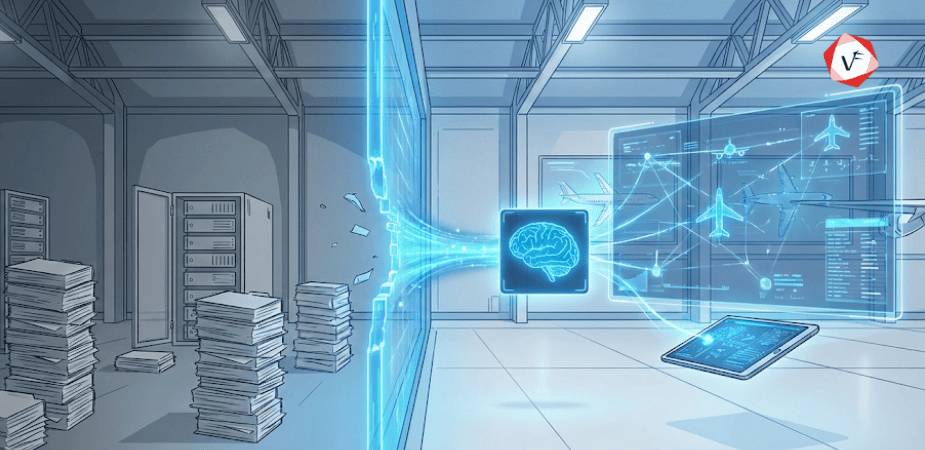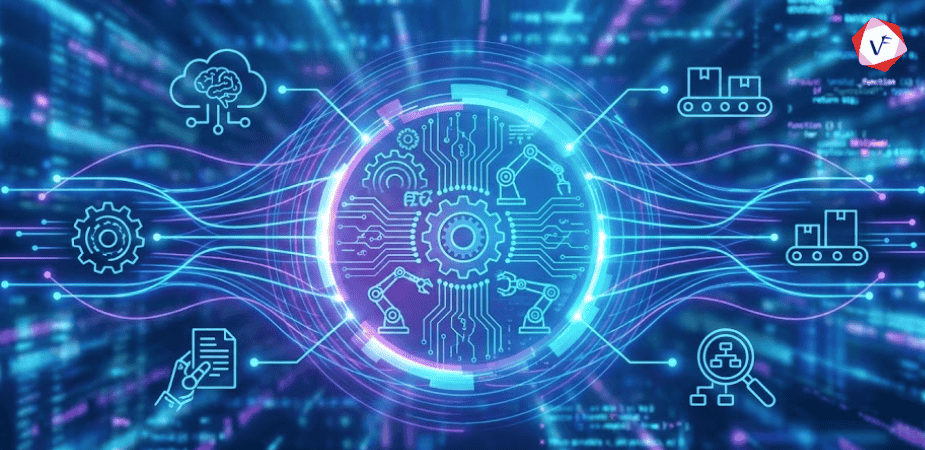The world of healthcare is changing fast, and Artificial Intelligence (AI) is leading the way. From diagnosing diseases to helping doctors make better decisions, AI is revolutionizing the health industry in ways we never imagined. But what exactly is AI doing in healthcare? Let’s break it down in simple words.
How Is AI Changing the Health Industry?
- AI in Diagnosing Diseases Faster and More Accurately
One of the biggest advantages of AI in healthcare is its ability to diagnose diseases quickly and accurately. AI-powered tools can analyze medical images, such as X-rays, MRIs, and CT scans, better than humans in some cases. For example:
- AI can detect early signs of cancer, helping doctors start treatment sooner.
- It can identify patterns in medical scans that may not be visible to the human eye.
- AI-powered apps can help people check symptoms and suggest whether they need to visit a doctor.
One example is Google’s DeepMind, which developed an AI system capable of detecting over 50 eye diseases with an accuracy comparable to top doctors. Similarly, IBM Watson is used in oncology to analyze vast amounts of medical literature and assist doctors in diagnosing cancer more efficiently.
By reducing human error and speeding up diagnosis, AI is saving lives and making healthcare more precise.
- AI in Personalized Treatment Plans
Every patient is different, and AI helps doctors create treatment plans based on individual needs. By analyzing a person’s medical history, genetics, and lifestyle, AI can suggest the best treatment options. This is especially useful for chronic diseases like diabetes, heart disease, and cancer, where every patient responds differently to treatment.
For example:
- AI helps in predicting how a patient will react to a specific medicine.
- It suggests the best diet and exercise plan for a person based on their health conditions.
- AI can adjust treatment in real time by monitoring a patient’s response.
Precision medicine, which tailors treatments to a person’s genetic makeup, is a growing field powered by AI. Companies like Tempus use AI to analyze patient data and recommend the most effective treatments for cancer patients.
- AI in Robot-Assisted Surgeries
Robotic surgery is no longer a futuristic concept. AI-powered robots assist doctors in performing complex surgeries with precision. These robots do not replace doctors but help them by:
- Reducing the risk of human error.
- Making smaller incisions leads to faster recovery.
- Enhancing accuracy is crucial in delicate surgeries, such as brain or heart procedures.
The da Vinci Surgical System exemplifies AI-driven precision, enabling surgeons to perform minimally invasive procedures with enhanced accuracy and control. AI in surgery leads to improved outcomes, shorter hospital stays, and fewer post-surgery complications.
- AI in Virtual Health Assistants
Imagine having a personal health assistant available 24/7. AI-powered virtual assistants help patients and doctors by:
- Answering health-related questions.
- Reminding patients to take their medications.
- Booking doctor appointments and managing medical records.
These AI assistants reduce the workload of healthcare professionals and ensure that patients get timely help. Apps like Babylon Health and Ada provide symptom checkers that guide users on whether they should see a doctor.
- AI in Drug Discovery and Development
Developing a new medicine takes years, sometimes even decades. AI is speeding up this process by analyzing vast amounts of data to find new drug candidates faster. For example:
- AI can predict which chemical compounds will be most effective in treating a disease.
- It can analyze existing drugs to see if they can be repurposed for new diseases.
- AI helps in testing drugs faster, reducing the cost of development.
During the COVID-19 pandemic, AI was instrumental in vaccine development, aiding in virus structure analysis and predicting effective treatments. Companies like BenevolentAI and Insilico Medicine leveraged AI to speed up drug discovery, with the potential to save millions of lives.
- AI in Remote Patient Monitoring
Many patients, especially those with chronic illnesses, need continuous monitoring. AI-powered wearable devices and sensors track vital signs like heart rate, blood pressure, and oxygen levels. These devices send real-time data to doctors, allowing them to:
- Detect health issues before they become serious.
- Provide immediate medical attention when needed.
- Help patients manage their conditions at home without frequent hospital visits.
For instance, Apple Watch and Fitbit use AI to detect irregular heart rhythms, potentially preventing strokes and other heart conditions.
- AI in Predicting Disease Outbreaks
AI is also helping prevent diseases on a large scale by predicting outbreaks. By analyzing data from different sources, such as weather patterns, travel records, and social media trends, AI can:
- Identify regions at risk of disease outbreaks.
- Help governments take preventive measures.
- Alert healthcare systems to prepare for upcoming health crises.
This was seen during the COVID-19 pandemic, where AI helped track the spread of the virus and predict hotspots. BlueDot, a Canadian AI company, was one of the first to warn about the outbreak of COVID-19 by analyzing global data.
- AI in Reducing Healthcare Costs
One of the biggest challenges in healthcare is high costs. AI is helping reduce these costs by:
- Automating administrative tasks reduces the need for extra staff.
- Preventing hospital readmissions by monitoring patients remotely.
- Speeding up diagnosis and treatment, leading to fewer hospital stays.
By making healthcare more efficient, AI is ensuring that quality medical care is available to more people at lower costs.
- AI in Mental Health Support
Mental health is just as important as physical health, and AI is making mental healthcare more accessible. AI-powered chatbots and virtual therapists provide support to people dealing with stress, anxiety, and depression. These tools:
- Offer therapy sessions through apps.
- Analyze speech and text to detect early signs of mental health issues.
- Provide self-help resources for those who cannot visit a therapist.
Apps like Woebot and Wysa use AI to offer mental health support, helping users manage their emotions and stress levels.
- AI in Managing Healthcare Data
Hospitals generate huge amounts of data every day. AI helps organize and analyze this data to improve patient care. With AI:
- Doctors can access patient records faster.
- Hospitals can predict which departments need more resources.
- Researchers can find patterns in diseases to improve treatments.
This makes the entire healthcare system run smoothly and efficiently. AI-driven platforms like Google Health and Microsoft’s AI for Health initiative focus on improving data management in hospitals.
Challenges of AI in Healthcare
While AI is transforming healthcare, it also comes with challenges:
- Privacy concerns: AI collects sensitive patient data, which needs strong protection.
- High costs: Implementing AI in hospitals requires expensive technology.
- Need for human oversight: AI can assist doctors, but final decisions should always be made by humans.
Despite these challenges, AI is proving to be a game-changer in healthcare.
Final Thoughts
AI is not here to replace doctors or nurses. Instead, it is here to assist them, making healthcare faster, smarter, and more efficient. From diagnosing diseases early to performing precise surgeries, AI is improving patient care in remarkable ways. As technology continues to advance, the future of healthcare looks promising, with AI leading the way.
With AI, the goal is simple: better health, better treatments, and a better future for all.





